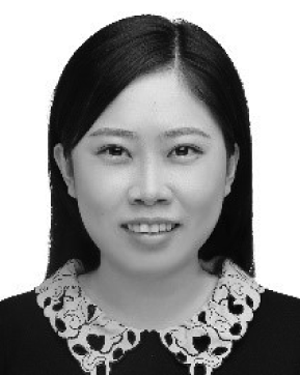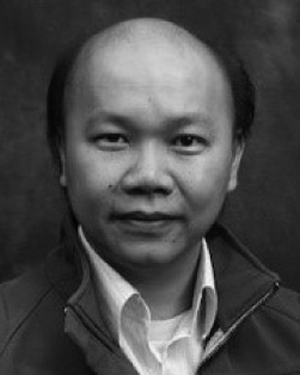Abstract:
Network embedding has attracted an increasing attention over the past few years. As an effective approach to solve graph mining problems, network embedding aims to learn ...Show MoreMetadata
Abstract:
Network embedding has attracted an increasing attention over the past few years. As an effective approach to solve graph mining problems, network embedding aims to learn a low-dimensional feature vector representation for each node of a given network. The vast majority of existing network embedding algorithms, however, are only designed for unsigned networks, and the signed networks containing both positive and negative links, have pretty distinct properties from the unsigned counterpart. In this paper, we propose a deep network embedding model to learn the low-dimensional node vector representations with structural balance preservation for the signed networks. The model employs a semisupervised stacked auto-encoder to reconstruct the adjacency connections of a given signed network. As the adjacency connections are overwhelmingly positive in the real-world signed networks, we impose a larger penalty to make the auto-encoder focus more on reconstructing the scarce negative links than the abundant positive links. In addition, to preserve the structural balance property of signed networks, we design the pairwise constraints to make the positively connected nodes much closer than the negatively connected nodes in the embedding space. Based on the network representations learned by the proposed model, we conduct link sign prediction and community detection in signed networks. Extensive experimental results in real-world datasets demonstrate the superiority of the proposed model over the state-of-the-art network embedding algorithms for graph representation learning in signed networks.
Published in: IEEE Transactions on Cybernetics ( Volume: 50, Issue: 4, April 2020)
Funding Agency:

Department of Computing, Hong Kong Polytechnic University, Hong Kong
Xiao Shen received the double B.Sc. degrees in electronic engineering from the Beijing University of Posts and Telecommunications, Beijing, China, and the Queen Mary University of London, London, U.K. in 2012, and the M.Phil. degree in computer science from the University of Cambridge, Cambridge, U.K., in 2013. She is currently pursuing the Ph.D. degree in computer science with the Department of Computing, Hong Kong Polyt...Show More
Xiao Shen received the double B.Sc. degrees in electronic engineering from the Beijing University of Posts and Telecommunications, Beijing, China, and the Queen Mary University of London, London, U.K. in 2012, and the M.Phil. degree in computer science from the University of Cambridge, Cambridge, U.K., in 2013. She is currently pursuing the Ph.D. degree in computer science with the Department of Computing, Hong Kong Polyt...View more

Department of Computing, Hong Kong Polytechnic University, Hong Kong
Fu-Lai Chung received the B.Sc. degree from the University of Manitoba, Winnipeg, MB, Canada, in 1987 and the M.Phil. and Ph.D. degrees from the Chinese University of Hong Kong, Hong Kong, in 1991 and 1995, respectively.
In 1994, he joined the Department of Computing, Hong Kong Polytechnic University, Hong Kong, where he is currently an Associate Professor. He has published widely in prestige international journals, includ...Show More
Fu-Lai Chung received the B.Sc. degree from the University of Manitoba, Winnipeg, MB, Canada, in 1987 and the M.Phil. and Ph.D. degrees from the Chinese University of Hong Kong, Hong Kong, in 1991 and 1995, respectively.
In 1994, he joined the Department of Computing, Hong Kong Polytechnic University, Hong Kong, where he is currently an Associate Professor. He has published widely in prestige international journals, includ...View more

Department of Computing, Hong Kong Polytechnic University, Hong Kong
Xiao Shen received the double B.Sc. degrees in electronic engineering from the Beijing University of Posts and Telecommunications, Beijing, China, and the Queen Mary University of London, London, U.K. in 2012, and the M.Phil. degree in computer science from the University of Cambridge, Cambridge, U.K., in 2013. She is currently pursuing the Ph.D. degree in computer science with the Department of Computing, Hong Kong Polytechnic University, Hong Kong.
Her current research interests include feature representation learning, deep learning, transfer learning, and data mining in complex networks.
Ms. Shen was a recipient of the Excellent Academic Performance Scholarship Awarded by the Queen Mary University of London and the Hong Kong Ph.D. Fellowship Awarded by the Research Grants Council of the SAR Government.
Xiao Shen received the double B.Sc. degrees in electronic engineering from the Beijing University of Posts and Telecommunications, Beijing, China, and the Queen Mary University of London, London, U.K. in 2012, and the M.Phil. degree in computer science from the University of Cambridge, Cambridge, U.K., in 2013. She is currently pursuing the Ph.D. degree in computer science with the Department of Computing, Hong Kong Polytechnic University, Hong Kong.
Her current research interests include feature representation learning, deep learning, transfer learning, and data mining in complex networks.
Ms. Shen was a recipient of the Excellent Academic Performance Scholarship Awarded by the Queen Mary University of London and the Hong Kong Ph.D. Fellowship Awarded by the Research Grants Council of the SAR Government.View more

Department of Computing, Hong Kong Polytechnic University, Hong Kong
Fu-Lai Chung received the B.Sc. degree from the University of Manitoba, Winnipeg, MB, Canada, in 1987 and the M.Phil. and Ph.D. degrees from the Chinese University of Hong Kong, Hong Kong, in 1991 and 1995, respectively.
In 1994, he joined the Department of Computing, Hong Kong Polytechnic University, Hong Kong, where he is currently an Associate Professor. He has published widely in prestige international journals, including the IEEE Transactions on Neural Networks and Learning Systems, the IEEE Transactions on Fuzzy Systems, the IEEE Transactions on Cybernetics, the IEEE Transactions on Knowledge and Data Engineering, Pattern Recognition, and Neural Networks. His current research interests include deep learning, transfer learning, adversarial learning, social network analysis and mining, recommendation systems, and big data learning.
Dr. Chung also serves on program committees of top international conferences, including IEEE ICDM, AAAI, and ICPR.
Fu-Lai Chung received the B.Sc. degree from the University of Manitoba, Winnipeg, MB, Canada, in 1987 and the M.Phil. and Ph.D. degrees from the Chinese University of Hong Kong, Hong Kong, in 1991 and 1995, respectively.
In 1994, he joined the Department of Computing, Hong Kong Polytechnic University, Hong Kong, where he is currently an Associate Professor. He has published widely in prestige international journals, including the IEEE Transactions on Neural Networks and Learning Systems, the IEEE Transactions on Fuzzy Systems, the IEEE Transactions on Cybernetics, the IEEE Transactions on Knowledge and Data Engineering, Pattern Recognition, and Neural Networks. His current research interests include deep learning, transfer learning, adversarial learning, social network analysis and mining, recommendation systems, and big data learning.
Dr. Chung also serves on program committees of top international conferences, including IEEE ICDM, AAAI, and ICPR.View more


